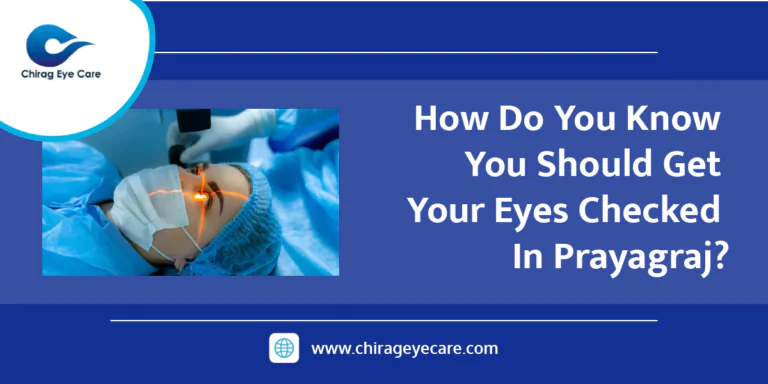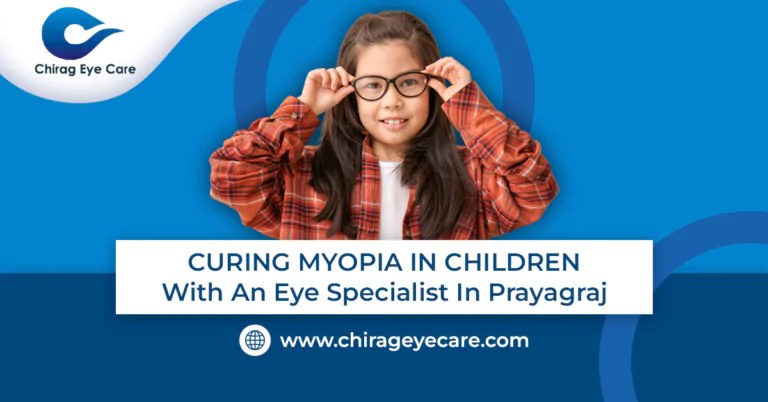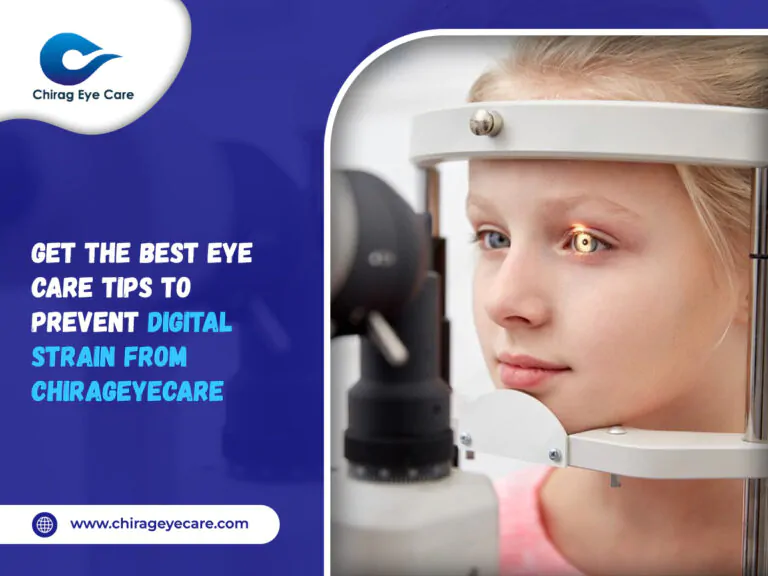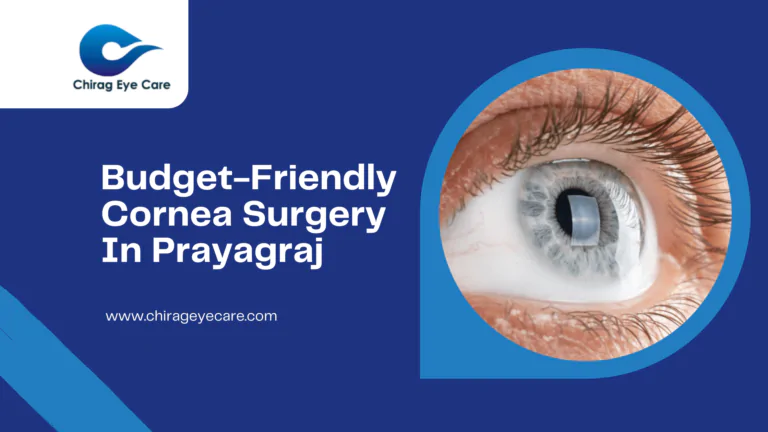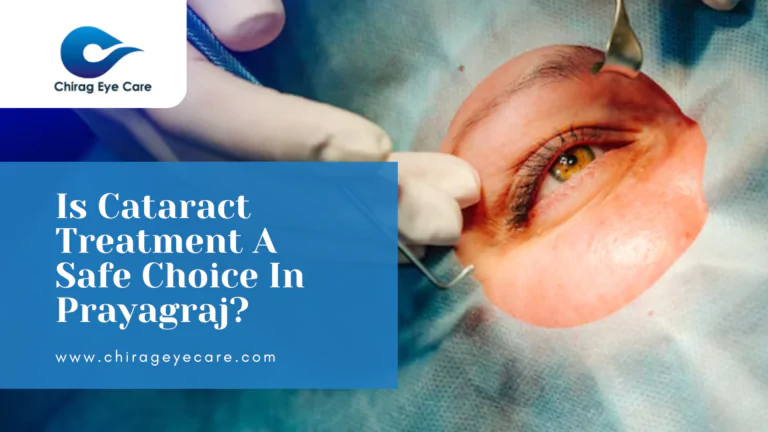How Environmental Factors Affect Your Eyesight
Our eyes help us see the world. They let us enjoy colors, shapes, and everything around us. But did you know that the environment can affect our eyes? Yes, many things around us, like the sun, wind, and even the air, can change how well we see.
Let’s learn more about these environmental factors and how they can sometimes lead to problems like cornea damage. Remember, if our eyes do get hurt, treatments like cornea damage treatment can help. Let’s explore how the environment can affect our eyesight.
The Bright Sun and Its Effects
The sun is very important for life on Earth. It gives us light and warmth. But, staring at the sun or spending too much time outside without protecting our eyes can be harmful. The sun has invisible rays called ultraviolet (UV) rays. These rays can damage our eyes. When we spend a lot of time in the sun without sunglasses, UV rays can hurt the cornea, which is the clear front part of our eyes.
What can happen?
- Sunburned Eyes: Yes, our eyes can get sunburned! This is called photokeratitis. It can cause pain, redness, and a feeling like there’s something in your eye.
- Long-term Damage: Over time, too much exposure to UV rays can lead to serious problems like cataracts or cornea damage.
How to protect your eyes?
- Always wear sunglasses when you go outside, even on cloudy days. Look for sunglasses that block 100% of UV rays.
- Wear a hat with a wide brim to keep the sun off your face and eyes.
Wind, Dust, and Allergies
Have you ever been outside on a windy day and felt something blow into your eyes? Wind can carry tiny particles like dust and dirt. When these get into our eyes, they can cause irritation. If our eyes get irritated often, it can lead to problems with the cornea, making cornea damage treatment necessary.
What happens to your eyes?
- Dry Eyes: Wind can dry out the moisture in our eyes, making them feel scratchy or itchy.
- Allergies: Dust and pollen carried by the wind can cause allergies. This can make our eyes red, watery, and itchy.
- Infections: If we rub our eyes with dirty hands when they feel itchy, it can lead to infections.
How to protect your eyes?
- When it’s windy or dusty outside, wear protective glasses.
- If you have allergies, wash your hands and face often to remove dust and pollen.
- Avoid rubbing your eyes.
Pollution and Its Impact
Air pollution is a big problem in many cities. Smoke, chemicals, and other pollutants in the air can affect our eyes. When we are exposed to polluted air for a long time, it can harm the cornea and lead to the need for cornea damage treatment.
How does pollution affect the eyes?
- Irritation: Polluted air can make our eyes burn and become red.
- Dryness: Chemicals in the air can dry out the tears in our eyes, making them feel dry and uncomfortable.
- Cornea Damage: Over time, pollution can damage the cornea, the clear outer layer of the eye.
How to protect your eyes from pollution?
- Try to stay indoors on days when the air quality is poor.
- Use an air purifier at home to keep the air clean.
- Wash your eyes with clean water if they feel irritated.
Screen Time and Blue Light
In today’s world, we spend a lot of time looking at screens – TVs, computers, tablets, and phones. While these devices are fun and useful, they can affect our eyes if we use them too much. Screens give off blue light, which can be hard on our eyes. Spending long hours in front of screens can strain our eyes and might even affect the cornea.
What can happen?
- Eye Strain: Staring at screens for a long time can make our eyes tired and sore.
- Dry Eyes: We blink less when we look at screens, which can dry out our eyes.
- Cornea Stress: Over time, too much screen time can stress the cornea, potentially leading to cornea damage.
How to protect your eyes from screen time?
- Follow the 20-20-20 rule: Every 20 minutes, take a 20-second break and look at something 20 feet away.
- Use blue light filters on your devices.
- Keep your screen at a comfortable distance and avoid using screens in the dark.
Water and Swimming
Swimming is fun, especially on a hot day. But did you know that water can sometimes hurt your eyes? Swimming pools have chlorine, a chemical that keeps the water clean. While chlorine is good for killing germs, it can irritate our eyes. Lakes and oceans can have bacteria that might cause eye infections, potentially affecting the cornea and requiring cornea damage treatment.
What can happen to your eyes when swimming?
- Redness and Irritation: Chlorine and other chemicals in pool water can make your eyes red and itchy.
- Infections: Swimming in lakes or oceans can expose your eyes to bacteria, which can cause infections.
- Cornea Problems: If your eyes get infected, it can sometimes lead to cornea damage.
How to protect your eyes while swimming?
- Wear swimming goggles to keep water out of your eyes.
- Avoid rubbing your eyes after swimming.
- Rinse your eyes with clean water after swimming to remove chlorine or salt.
Seasonal Changes and Their Effects
Different seasons bring different challenges for our eyes. For example, in winter, the air can be dry, which can make our eyes dry too. In summer, the bright sun can be harsh on our eyes. Seasonal changes can sometimes lead to issues with the cornea, making cornea damage treatment necessary.
How do seasons affect your eyes?
- Winter: The cold, dry air can dry out our eyes, causing discomfort.
- Spring: Pollen from blooming plants can cause allergies, making eyes red and itchy.
- Summer: Intense sunlight can increase the risk of UV damage to the cornea.
How to protect your eyes in different seasons?
- In winter, use a humidifier indoors to keep the air moist.
- In spring, keep windows closed on high-pollen days to avoid allergies.
- In summer, wear sunglasses and a hat to protect your eyes from the sun.
How Can We Take Care of Our Eyes?
Taking care of our eyes is important to keep them healthy. Here are some simple ways to protect your eyes from environmental harm:
- Wear Sunglasses: Choose sunglasses that block 100% of UV rays to protect your eyes from the sun.
- Wear Goggles: Use protective goggles when swimming or when it’s windy and dusty outside.
- Limit Screen Time: Take regular breaks from screens to reduce eye strain.
- Stay Hydrated: Drink plenty of water to keep your eyes and body hydrated.
- Keep Your Hands Clean: Wash your hands regularly to avoid transferring dirt and germs to your eyes.
- Eat Healthy Foods: Eat foods rich in vitamins, like carrots and leafy greens, to keep your eyes strong.
- Get Regular Eye Check-Ups: Visit an eye doctor regularly to ensure your eyes are healthy. If you have any problems, they can help with treatments like cornea damage treatment if needed.
When to See a Doctor?
Sometimes, even if we take care of our eyes, they might still get hurt. If your eyes feel painful, stay red, or you have trouble seeing, it’s important to tell an adult and visit an eye doctor. They can help find out what’s wrong and suggest treatments like cornea damage treatment if necessary.
Signs that you need to see an eye doctor:
- Constant eye pain or discomfort
- Blurry vision or trouble seeing
- Red, itchy, or watery eyes that don’t get better
- Feeling like something is in your eye
Conclusion
Our environment plays a big role in keeping our eyes healthy. While the sun, wind, and even the air can sometimes harm our eyes, taking simple steps can protect them. Wearing sunglasses, limiting screen time, and using protective goggles while swimming can make a big difference.
Remember, our eyes are precious, and taking care of them now can help us see the world clearly for a long time. And if our eyes ever get hurt, treatments like cornea damage treatment in prayagraj are there to help. So, let’s make sure we keep our eyes safe and healthy every day!



